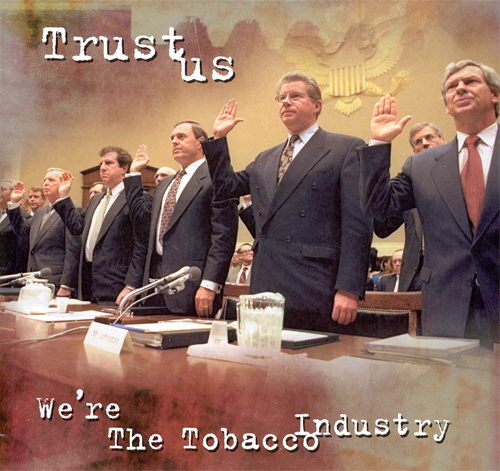 First published: February 26, 2010
First published: February 26, 2010
Source: Reuters
GENEVA (Reuters) – Governments must do more to protect workers in bars, restaurants and the entertainment sector from harmful smoke, and curb tobacco advertising and sponsorship, the World Health Organization said on Friday.
Developing countries are the new frontier for tobacco companies, which often target women and girls, and smoking rates remain high among poor people in affluent countries, it said.
Tobacco kills more than 5 million people a year from cardiovascular disease, cancers, diabetes and other chronic illnesses, including about 600,000 from second-hand smoke, according to the United Nations agency.
“Most alarming of all, tobacco use is actually increasing in many developing countries. If Big Tobacco is in retreat in some parts of the world, it is on the march in others,” Dr. Margaret Chan, WHO director-general, told a meeting to review implementation of a landmark tobacco treaty five years after it came into force.
“As we all know, the tobacco industry is ruthless, devious, rich and powerful,” she said.
The Framework Convention on Tobacco Control, under review at the WHO, is the world’s first and only public health treaty and has been ratified by 168 countries including China.
It obliges governments to protect their populations from exposure to tobacco smoke and reduce demand through price and tax measures, regulating packaging and labelling of tobacco products and curbing tobacco advertising and sponsorship.
SMOKE-FREE LAWS
But WHO monitoring has revealed huge gaps in implementing the treaty.
“For example, just slightly more than 5 percent of the world’s population is protected by national smoke-free laws,” Chan said.
Indonesia, the world’s fourth-most populous nation, the United States, and tobacco-producing Zimbabwe are among those that have stayed outside the pact.
Many countries have implemented smoking bans in government buildings and health-care facilities, but have much lower rates in the entertainment and hospitality sectors, a WHO report said.
Tobacco taxes are the most effective way to reduce tobacco use, but only 21 countries have tobacco tax rates greater than 75 percent of the retail price, Chan said.
Fewer than one third of treaty members restrict advertising, promotion and sponsorship of tobacco products, the WHO says.
Tobacco companies had argued that the treaty threatened the livelihoods of tobacco farmers, advertising revenues, and the survival of restaurants, bars and sporting events, Chan said.
The main threat to fully implementing the treaty remains interference by the tobacco industry, activist groups including Corporate Accountability International said in a statement.
“Big Tobacco promotes its addictive and deadly product to kids with images like Philip Morris’s Marlboro Man, by sponsoring rock concerts and sporting events, and by putting tobacco brand names and logos on everything from T-shirts to patio umbrellas,” they said.
Philip Morris International, which sells Marlboro cigarettes and is the world’s largest non-state-owned tobacco firm, declined to comment on Chan’s comments, but said it supported regulation and many of the treaty provisions.
“We really hope the process focuses on implementing effective regulations that work, such as measures to reduce youth smoking and illicit trade in tobacco products, to reduce harm caused by smoking,” spokesman Ben Russell told Reuters.
A British American Tobacco spokesman voiced dismay at the WHO’s unwillingness to talk to the industry.
“The WHO thinks its aims such as encouraging retail display bans and plain packaging will make a difference. There is no evidence to show this – it just drives illicit trade,” he said.
Written by Stephanie Nebehay
(Additional reporting by David Jones in London)
(Editing by Jonathan Lynn and Elizabeth Fullerton)